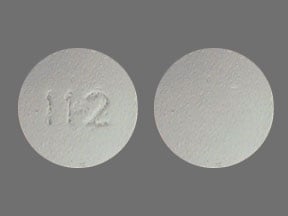
Salsalate Coupons & Savings Card – Discount Prices from $26.66
Salsalate is a medication primarily used to alleviate pain and swelling associated with osteoarthritis and rheumatoid arthritis in adults. Classified as a nonsteroidal anti-inflammatory drug (NSAID), salsalate operates by inhibiting cyclooxygenase (COX) proteins in the body, which are responsible for causing inflammation, pain, and swelling. Typically administered as a tablet taken orally two to three times a day, salsalate was formerly available under the brand name Disalcid but is now only offered in its generic form. Common side effects may include nausea, dizziness, and temporary hearing issues. Always consult with a healthcare professional before starting any new medication to ensure its safety and effectiveness for your specific condition.
Our coupons are free to use. Before paying, show the pharmacist your Salsalate savings card to get your free discount. Use our filters below to edit the prescription box to match your needs. The Salsalate prices will update based on your prescription needs. Above our Salsalate coupons, you can change your location to see pharmacy prices and costs in other areas. We're here to help you buy Salsalate at the lowest price with our prescription discount card.
My prescription
Edit
500MG, Salsalate (60 Tablets)
Select pharmacy

CVS
$26.66
COUPON PRICE
Albertsons
$29.17
COUPON PRICE
Walmart
$77.00
COUPON PRICE
Walgreens
$80.65
COUPON PRICESalsalate savings card
Show this card to your pharmacist
CVS
$26.66
BIN
ID
PCN
GRP
019876
LH72559365
CHIPPO
LHX
Powered by
Salsalate is a medication primarily used to alleviate pain and swelling associated with osteoarthritis and rheumatoid arthritis in adults. Classified as a nonsteroidal anti-inflammatory drug (NSAID), salsalate operates by inhibiting cyclooxygenase (COX) proteins in the body, which are responsible for causing inflammation, pain, and swelling. Typically administered as a tablet taken orally two to three times a day, salsalate was formerly available under the brand name Disalcid but is now only offered in its generic form. Common side effects may include nausea, dizziness, and temporary hearing issues. Always consult with a healthcare professional before starting any new medication to ensure its safety and effectiveness for your specific condition.
Our coupons are free to use. Before paying, show the pharmacist your Salsalate savings card to get your free discount. Use our filters below to edit the prescription box to match your needs. The Salsalate prices will update based on your prescription needs. Above our Salsalate coupons, you can change your location to see pharmacy prices and costs in other areas. We're here to help you buy Salsalate at the lowest price with our prescription discount card.
Related NSAIDs prescriptions
More prescriptions for rheumatoid arthritis
coupons from$1120.07Save 73%
coupons from$2385.99Save 72%
coupons from$17.34Save 52%
coupons from$17.34Save 52%
coupons from$54.96Save 79%
coupons from$7.93Save 67%
coupons from$9.65Save 78%
coupons from$17.34Save 52%
Related NSAIDs prescriptions
Naprosyn Save 74%coupons from $6.55
Zorvolex Save 93%coupons from $55.74
Elyxyb Save 74%coupons from $132.35
Meclofenamate Save 58%coupons from $241.18
Meloxicam Save 96%coupons from $3.15
Cambia Save 97%coupons from $89.85
Bromsite Save 80%coupons from $87.84
Daypro Save 49%coupons from $32.68
More prescriptions for rheumatoid arthritis
Actemra Save 73%coupons from $1120.07
Kevzara Save 72%coupons from $2385.99
Goodsense Aspirin Adult Low St Save 52%coupons from $17.34
Ft Aspirin Save 52%coupons from $17.34
Orapred Odt Save 79%coupons from $54.96
Aleve Save 67%coupons from $7.93
Aleve Arthritis Pain Save 78%coupons from $9.65
Eq Aspirin Low Dose Save 52%coupons from $17.34
Salsalate dosage forms
Use our Salsalate 500MG coupon with prices from $26.66 for 60 Tablets. You can also use our Salsalate 500MG coupon with prices from $22.08 for 30 Tablets. We have a Salsalate 500MG coupon with prices from $23.88 for 40 Tablets. You can use our Salsalate 500MG coupon with prices from $30.85 for 90 Tablets.
Dosage Quantity Price from Per unit 500MG 60 Tablets $26.66 $0.44 500MG 30 Tablets $22.08 $0.74 500MG 40 Tablets $23.88 $0.60 500MG 90 Tablets $30.85 $0.34 500MG 100 Tablets $32.24 $0.32 500MG 120 Tablets $35.03 $0.29 500MG 270 Tablets $63.94 $0.24 500MG 500 Tablets $96.00 $0.19 500MG 1000 Tablets $165.70 $0.17 750MG 14 Tablets $7.35 $0.53
| Dosage | Quantity | Price from | Per unit |
|---|---|---|---|
| 500MG | 60 Tablets | $26.66 | $0.44 |
| 500MG | 30 Tablets | $22.08 | $0.74 |
| 500MG | 40 Tablets | $23.88 | $0.60 |
| 500MG | 90 Tablets | $30.85 | $0.34 |
| 500MG | 100 Tablets | $32.24 | $0.32 |
| 500MG | 120 Tablets | $35.03 | $0.29 |
| 500MG | 270 Tablets | $63.94 | $0.24 |
| 500MG | 500 Tablets | $96.00 | $0.19 |
| 500MG | 1000 Tablets | $165.70 | $0.17 |
| 750MG | 14 Tablets | $7.35 | $0.53 |
| 750MG | 20 Tablets | $9.43 | $0.47 |
| 750MG | 21 Tablets | $9.78 | $0.47 |
| 750MG | 24 Tablets | $10.82 | $0.45 |
| 750MG | 28 Tablets | $12.21 | $0.44 |
| 750MG | 30 Tablets | $12.90 | $0.43 |
| 750MG | 40 Tablets | $16.37 | $0.41 |
| 750MG | 60 Tablets | $23.30 | $0.39 |
| 750MG | 90 Tablets | $33.70 | $0.37 |
| 750MG | 100 Tablets | $37.17 | $0.37 |
| 750MG | 120 Tablets | $43.12 | $0.36 |
| 750MG | 180 Tablets | $63.52 | $0.35 |
| 750MG | 270 Tablets | $82.14 | $0.30 |
| 750MG | 500 Tablets | $129.70 | $0.26 |
| 750MG | 1000 Tablets | $233.10 | $0.23 |
